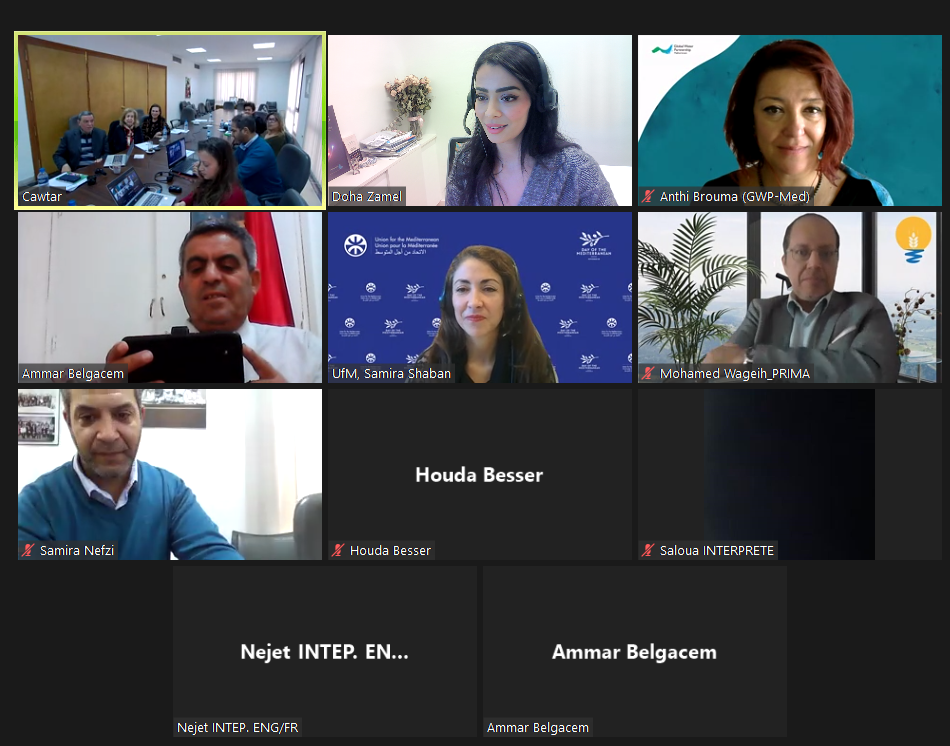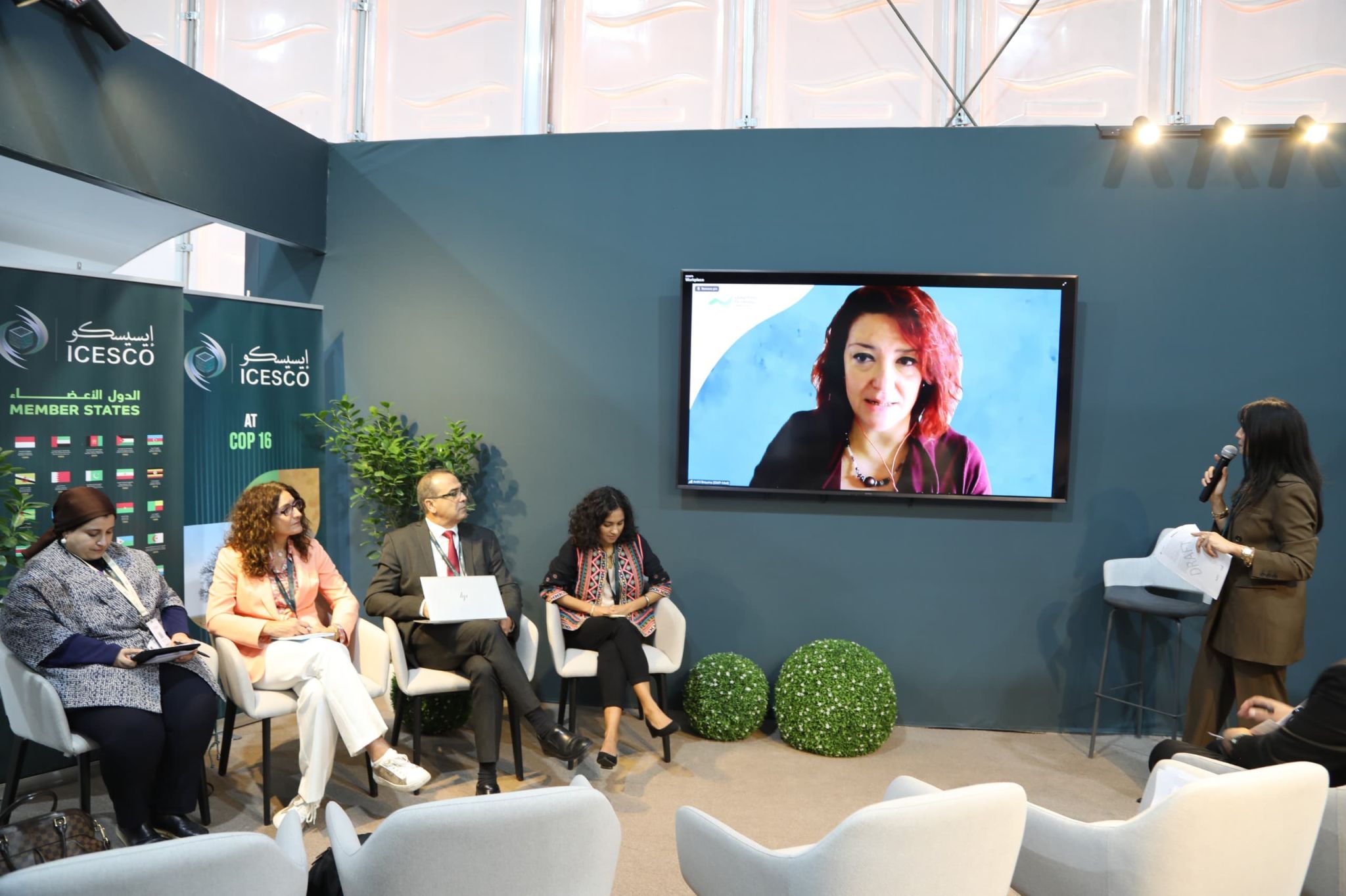It was in February 2024, in Tunis, that the journey started, when the Gender Dynamics and the WEFE Nexus in the Mediterranean event was held during the 5th Mediterranean Water Forum. Co-organised by the Union for the Mediterranean Secretariat (UfM), the Spanish Agency for International Development Cooperation (AECID), the Global Water Partnership – Mediterranean (GWP-Med) and the Center of Arab Women for Training and Research (CAWTAR), the event provided a platform for more than 65 stakeholders to discuss the interplay between gender dynamics and the WEFE Nexus in the Mediterranean region. The discussions, culminating with the preparation of seven concrete recommendations, underscored the significant role women play in managing water, energy, and food resources and the need for a gender-transformative approach in policy and governance frameworks.
Importantly, the Tunis event signalled the launching of an Initiative on Gendering the WEFE Nexus in the Mediterranean, co-led by the UfM Secretariat, AECID, PRIMA, GWP-Med and CAWTAR.

In the aftermath of the 5th Mediterranean Water Forum, and aiming for action on these recommendations, the Initiative’s co-leaders held a Virtual Discussion Forum on Gender Dynamics & the WEFE Nexus in the Mediterranean: focus on economic empowerment through a business-centric approach, on 13 May 2024, to shed some light on the practical way forward and in view of the 10th World Water Forum in Bali. It is increasingly evident that a specific mechanism should be put in place, addressing the interests and activities of businesses into the management and governance of water, energy, food, and ecosystems. Hence, a business-centric approach to the WEFE Nexus can seemingly contribute to advancing gender equality across the sustainable development goals and thus, towards regional stability, prosperity and peace. During the discussion forum, a panel of experts discussed the context of a business-centric approach for economic empowerment of women and for promoting gender equality within the WEFE Nexus frameworks and shared case studies from current and ongoing projects.
The Tunis event recommendations, along with the practical steps for a business-centric approach to Gendering the WEFE Nexus were taken forward to the 10th World Water Forum in Bali and included in the portfolio of the Mediterranean Regional Process.
Building further on this work, and making stronger linkages with the issue of desertification, a dedicated hybrid event on WEFE Nexus, Gender and Desertification in the Mediterranean: Towards COP16 in Riyadh was held on the occasion of the Mediterranean Day, on 28 November 2024. This hybrid event, highlighted the crucial role of women in mitigating desertification in the Mediterranean by integrating gender-sensitive approaches within the framework of the Water-Energy-Food-Ecosystems (WEFE) Nexus. By emphasising the interdependence of these four sectors, the event demonstrated how women, often at the forefront of facing the impacts of land degradation, can significantly contribute to environmental and socio-economic resilience, while also showcased concrete initiatives and innovative solutions that leverage women’s skills, local knowledge, and adaptive capacities to sustainably manage natural resources. Through contributions from regional and international stakeholders, including civil society organisations, government institutions, and international agencies, the event gathered a set of concrete messages to be taken to COP16.
On the occasion of the sixteenth session of the Conference of the Parties (COP16) of the United Nations Convention to Combat Desertification (UNCCD) that took place in Riyadh, Saudi Arabia, the Initiative’s co-leaders organised a hybrid event on Gender Dynamics & the WEFE Nexus in Combatting Desertification in the Arab and Mediterranean Regions on 5 December 2024, hosted at the pavilion of the Islamic World Educational, Scientific and Cultural Organization (ICESCO, formerly ISESCO).

Targeted interventions by regional and international organisations and regional civil society, highlighted several areas for work, including: the cultural transformation in institutions in order to introduce and implement gender responsive policies; the need to address both cultural norms and political barriers; the benefits from the synergy with the private sector (that has the know-how) and civil society (that works on the ground); the powerful catalyst of community-driven innovation; the critical role of financing, including micro-financing for empowering women to take on more active roles. In addition to the valuable insights, the Riyadh event strengthened partnerships and synergies with additional actors, while enriched the Initiative’s context thematically by addressing the issue of desertification and geographically by including the Arab region in the scope of work.
The above occasions provided context, interaction and guidance for the Initiative on Gendering the WEFE Nexus in the Mediterranean and the Arab Region to solidify. This is a continuum of work, a journey that started modestly in early 2024 and has taken off, ready to move from discussion to action.
